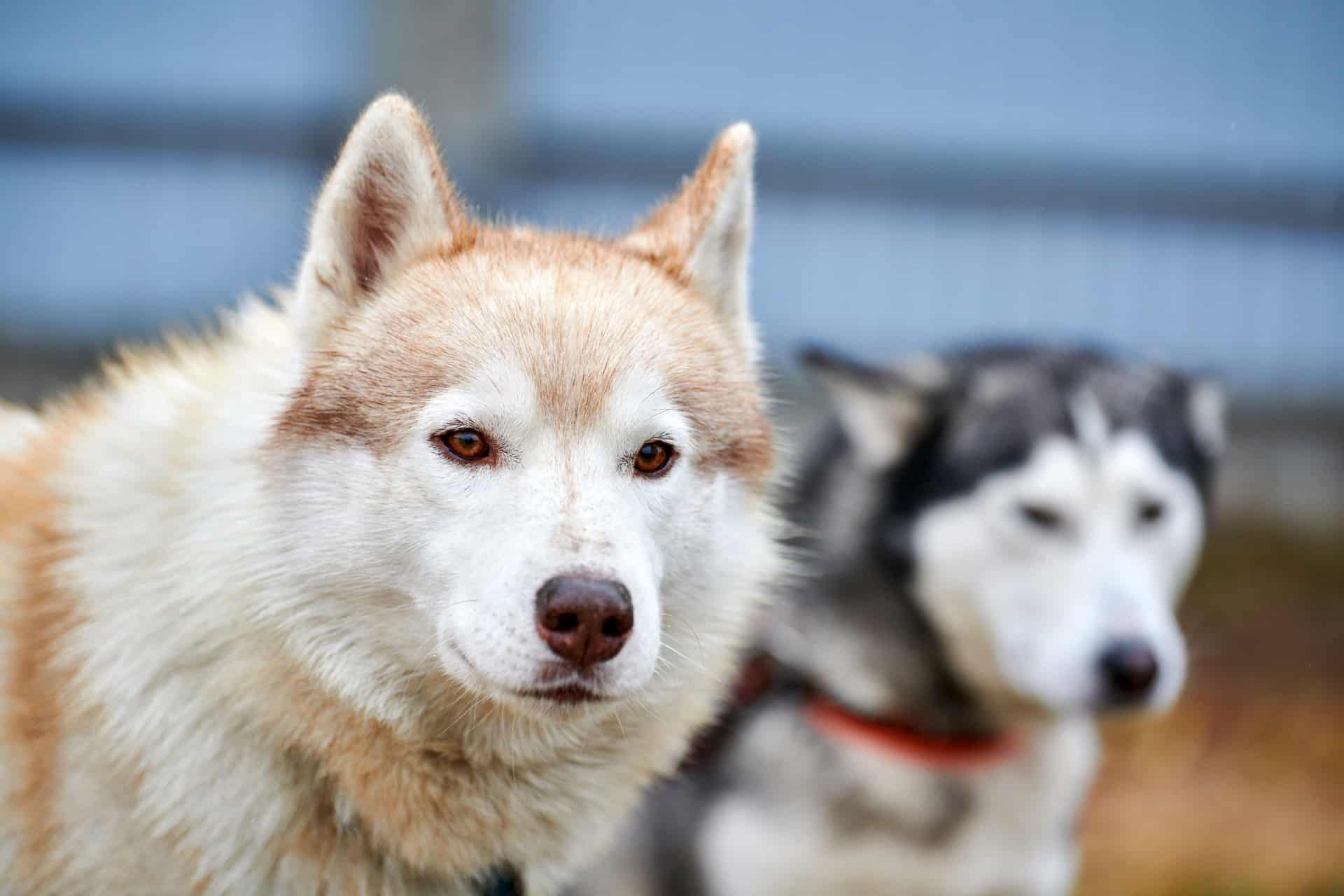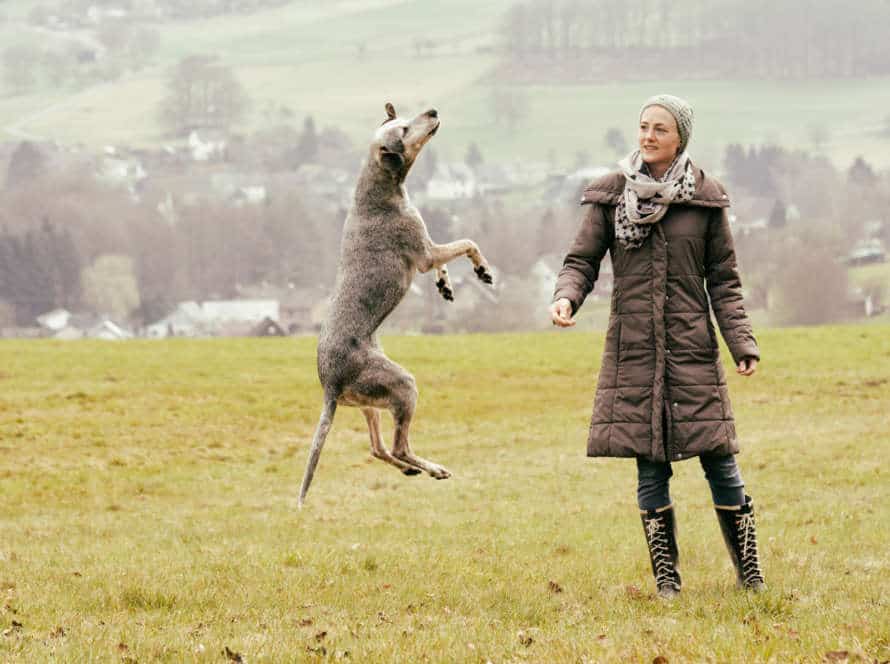Frustration Barking: A Sign of Unmet Needs
Frustration barking is a thing dogs do when their needs aren’t fulfilled. Reasons like boredom, anxiety, or lack of exercise can trigger it.
If your pup is barking like this, it’s important to find out why. Here are some tips:
- Make sure your dog is fed and gets enough exercise.
- Give it toys and puzzles to keep it busy.
- Try crate training or give it a safe space.
- Take it to obedience classes to learn proper behaviors.
- If the barking continues, consult a dog trainer or behaviorist.
Remember, a content pup is a healthy pup.
Understanding Frustration Barking
Your pup’s frustration barking is a sign that something’s wrong. Dogs bark for many reasons, but this kind of barking is unique. To solve the problem, you must understand why they’re barking. Here’s the lowdown on frustration barking and how to deal with it.
What is frustration barking?
Frustration barking is a form of noisy behavior that dogs do when they feel stressed or anxious. They feel like they have no control in their environment.
Dogs bark to show people what they need or want. But when they’re angry, they will bark more and longer. This often happens when they can’t do things they want to do, like running around.
If you see your pup doing this, it may mean their needs aren’t fulfilled. Give them more exercise, socialization, and mental stimulation. It’s best to talk to a vet or dog behavior expert if the behavior continues or affects your pup and your home.
Why do dogs frustrate bark?
Frustration barking is a way for dogs to express their emotions. It could be a sign of needing exercise, attention, socializing, mental stimulation, or freedom from boredom and fear.
Here are some possible causes:
- Exercise – They may bark to release pent-up energy if they don’t get enough.
- Separation anxiety – If left alone, dogs with this may bark to seek comfort.
- Fear – Barking may be a way to protect themselves if scared of certain people, situations, or things.
- Attention – They may bark when feeling ignored or neglected.
As pet owners, it’s important to figure out the cause of the barking. Try training, socializing, and positive reinforcement. If nothing works, seek help from a professional.
When does frustration barking occur?
Frustration barking in dogs is when their needs aren’t met. They can’t communicate their discomfort or anxiety verbally. Common causes include lack of exercise, boredom, insecurity, and separation anxiety.
Signs of frustration barking include loud, repetitive barking or whining, pacing, biting, and destructive behavior.
If your dog barks due to frustration, address the underlying cause. Give them enough exercise, mental stimulation, and socialization. Plus, proper training.
Handle triggers with positive reinforcement. Create a sense of security and comfort for your furry buddy.
Identifying the Causes of Frustration Barking
Frustration barking in dogs can be startling for their owners. To stop it, one must know why it’s happening. This article will discuss the causes of frustration barking and the solutions for it. It’ll give suggestions to address the issues that may be causing your pup’s barking.
Lack of Physical Exercise
Frustration barking in dogs can be caused by a lack of physical exercise. They are active animals and need regular exercise to stay mentally and physically healthy.
No exercise leads to boredom, restlessness, and anxiety in dogs. This energy can be expressed through barking, chewing, and digging. It’s their way to release the frustration.
To avoid frustration barking, it’s important to make sure your pup is getting enough exercise. Daily walks, runs and other activities can help.
You can also look into hiring a dog walker, enrolling in dog training classes or taking up a canine sport.
Remember: Meeting your dog’s needs for exercise will reduce frustration barking and improve their wellbeing!
Limitations on Mental Stimulation
Dogs require mental and physical stimulation to avoid frustration barking. This can come in the form of exercise, socialization, a varied daily routine, and mental stimulation from activities such as obedience training.
If these needs are not met, it can lead to excessive barking out of boredom or anxiety. To prevent this behavior from becoming a habit, it is important to identify the root cause.
Failure to do so may lead to further behavioral issues.
Separation Anxiety
Separation anxiety is a common reason for dogs to bark in frustration. When left alone too long, canines may feel anxious, lonely, and stressed – which can cause them to bark often and display other troublesome behaviors.
Here are some causes of separation anxiety in dogs:
- Socialization problems: Puppies not given enough socializing may suffer from anxiety when away from their owners.
- Not enough exercise: Dogs not getting enough physical and mental exercise are more likely to have anxiety and bark in frustration.
- Traumatic events: Experiences in the past which were traumatic may lead to separation anxiety, particularly when they involve being left alone.
- Genetics: Some breeds are more vulnerable to anxiety and may be highly prone to separation anxiety.
It is essential to address what is causing your dog’s frustration barking to help them stay calm when you’re not around. Giving them lots of exercise, mental stimulation, and positive reinforcement training can help reduce separation anxiety.
Management Techniques for Frustration Barking
Frustration barking is a sign of anxiety or stress in your pup. It’s important to identify what triggers this behavior and how to manage it. This article will provide helpful techniques to help you manage frustration barking.
Create a calm environment for your pup. Additionally, learn how to redirect your pup’s attention when it happens.
Teach the “Quiet” Command
Teach your pup the “Quiet” command. This can help with frustration barking. Here’s what to do:
- Wait till your pup starts barking due to frustration – like when they can’t get something they want.
- Say “Quiet” in a firm but calm voice.
- When your pup stops barking, give them a reward! A treat or toy works best.
- Repeat this process in different situations. This will help your pup link “Quiet” with stopping the barking.
Pro tip: Be consistent and patient with this technique. Don’t punish or scold your pup – it’ll only make it worse. Figure out the cause of the frustration – like if they need more exercise or mental stimulation.
Provide Interactive Toys
Interactive toys are a great way to provide mental stimulation and physical activity for dogs that bark due to unmet needs. These toys come in all shapes and sizes. They provide a fun, rewarding way for your pup to release energy and relieve anxiety.
Here are some of the best interactive toys for reducing frustration barking in dogs:
- Puzzle toys – with hidden treats to solve!
- Kongs – rubber toys that can be filled with delicious treats.
- Chew toys – durable and help prevent destructive behavior.
- Tug toys – perfect for interactive play and redirecting attention from barking.
It’s important to note: interactive toys can help manage barking, but they don’t address the underlying needs of your dog. Identifying and addressing the root cause is essential!
Incorporate Training Into Daily Routines
If your furry pal is frustratedly barking, incorporating training into daily activities can be a successful way to manage it. Here are some tips:
- Make training part of your everyday life. Spend a few minutes daily on teaching your pup obedience commands like ‘sit’ and ‘stay’.
- Utilize positive reinforcement techniques like treating your pup or praising when they behave properly.
- Incorporate interactive toys that challenge your pup mentally and physically, such as treat balls or puzzle feeders.
- Create a structured environment to reduce stress and anxiety for your pup. Have predictable routines for eating, exercising, and sleeping.
By integrating training into your daily activities, you can help give your pup the physical and mental stimulation they need, reducing frustration barking due to unmet needs.
Long-Term Solutions for Frustration Barking
Frustration barking! It’s a thing that dogs do when their needs aren’t met. To stop this behavior, it’s important to figure out why it’s happening. Here are some solutions to long-term frustration barking. They’ll help your furry friend have a better life!
Develop a Regular Exercise Routine
If your dog is exhibiting frustration barking, there’s a long-term solution.
Develop a regular exercise routine for your furry friend! Exercise is a great outlet for their energy and reduces frustration. Here are some tips to help:
- Figure out the amount of exercise needed based on breed, age and size.
- Choose exercises they enjoy – like fetch, walks, runs or classes like agility or obedience.
- Schedule exercise time daily – like an important appointment.
- Give them time to rest between sessions.
- Be consistent with the routine – to help them build healthy habits and reduce frustration barking.
Implement Obedience Training
Obedience training is an effective long-term solution for dogs who bark due to frustration.
It helps dogs learn to express their needs in a more suitable way. Here are some tips for obedience training:
- Start with basic commands like “sit“, “stay“, “come” and “leave it“.
- Use positive reinforcement such as praise, treats, and toys for good behavior.
- Be consistent and patient in your training.
- Gradually increase the difficulty of commands and add new ones.
- If needed, enroll your dog in a formal obedience training program or hire a professional dog trainer.
Consult a Certified Professional Dog Trainer
Frustration barking is a sign that your pup has unmet needs. Not addressing this can lead to behavioral issues. Consulting a professional dog trainer is the long-term solution.
Common causes of frustration barking include:
- Lack of exercise or mental stimulation.
- Separation anxiety.
- Fear or aggression towards other dogs or people.
A certified trainer can create a personalized plan. It will feature positive reinforcement and gradual desensitization exercises. This works better than punishment or shock collars.
Pro Tip: Check the credentials of the trainer. Good organizations to look for are CCPDT and IAABC. They use science-based, force-free training methods.
Frequently Asked Questions
What is frustration barking?
Frustration barking is a type of excessive barking that occurs when a dog is unable to meet its needs and becomes frustrated.
What causes frustration barking?
Frustration barking can be caused by a variety of factors, including boredom, lack of exercise, anxiety or stress, lack of socialization, and other unmet needs.
How can I stop my dog from frustration barking?
The best way to stop frustration barking is to identify and address the underlying cause. This may involve providing more exercise or mental stimulation, creating a consistent routine, or addressing any underlying medical or behavioral issues.
Is frustration barking harmful to my dog?
While frustration barking itself may not be harmful, it can be a sign that your dog is experiencing stress or anxiety. If left unaddressed, this can lead to other health or behavioral issues.
Can frustration barking be prevented?
Frustration barking can often be prevented by ensuring that your dog’s needs are being met on a regular basis. This includes providing enough exercise, mental stimulation, and socialization opportunities.
When should I seek professional help for my dog’s frustration barking?
If your dog’s frustration barking is persistent or is causing problems for you or your neighbors, it may be time to seek professional help from a veterinarian or animal behaviorist.







